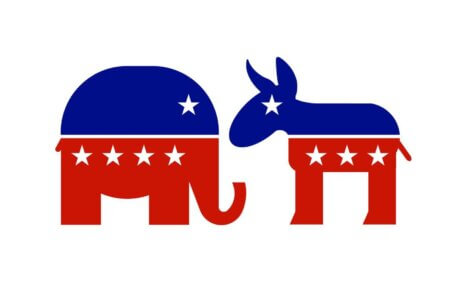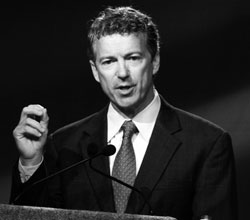Americans are more likely to identify as conservative, according to a Gallup poll published Jan. 10, 2014. This ideological classification of liberal vs. conservative permeates American politics and is often the basis by which individuals frame their political beliefs and spark everyday conversation with others.
Thomas Jefferson, a founding member of the US Constitution and 3rd President said, “I never considered a difference of opinion in politics, in religion, in philosophy, as cause for withdrawing from a friend.” This begs the question to be asked, is politics difficult to talk about?
Before one can debate whether politics is a difficult subject to talk about, he or she must first consider what is meant by politics.
Dr. Walter Greason, instructor of history and anthropology said, “Politics is the notion of distributed authority.” The US is a representative democracy, meaning voters elect individuals who then act for them in the public forum. According to Greason, the authority in politics is shared between these levels of membership in the political spectrum.
Some of the difficulty in discussing politics beyond the educational setting stems from the distribution of authority, and the feeling of powerlessness created by it. “People (constituents) don’t like to acknowledge their relative powerlessness. People in authority (elected officials) often feel uncomfortable with explaining their decision-making,” said Greason. He found this disconnect to be a contributing factor to the problems with the ease of conversing about politics.
Dr. Michelle Van Volkom, a lecturer of psychology added that the government is often viewed as “a very distrusted entity.” Despite noticing what seem to be prevalent levels of doubt in politics, Van Volkom noted that the problem is not necessarily discussing aspects like legislation and judicial decisions, rather, it is the conversation about the politicians themselves.
“I do not think politics is difficult to talk about – people do want to talk about it, but in current times there is such a feeling of disillusionment about politicians.” Van Volkom said that despite the disillusionment, the political world is very accessible, considering its prevalent role in the media.
Zak Fama, a sophomore history and political science major, aligned closer to Greason’s position. “Politics in the real world, especially today’s, is a very touchy subject. People often fear admitting their political affiliation to avoid scrutiny. So in a sense, yes, it is difficult to talk about. The varying opinions of people also make politics a little more difficult to discuss.”
The way in which individuals gain political knowledge also has an impact on how people discuss politics. According to Dr. Michael Phillips-Anderson, associate professor of communication, “Television news is often too simple and the laws themselves are too complex. We need effective civic education and a responsible means of translating political issues for the public to thoughtfully consider.” He said that the way in which individuals learn about the political world influences to what extent people can engage in political discussion before becoming argumentative.
Another influence on political discussions is the incentive politicians have to portray the political realm in a manner favorable to their positions.
Professor Gregory Bordelon, lecturer of political science said, “…The ability to educate people on how the methods of the political science discipline translate to the practical sphere of public politics that is challenging.” He said that because policy analysts and officials have their own agendas, political messages are often disseminated in ways convenient to their strategies.
In order to allow for better political discussion, Greason suggested the model of the Freedom Schools, educational centers primarily for African Americans originating from the Civil Rights Movement. He said, “The model of Freedom Schools foster democratic accountability and increase every individual’s perception of their ability to shape his or her life.”
Phillips-Anderson and Bordelon both noted that proper political education is important to foster constructive political discussion. Bordelon said, “Education about how governments operate, particularly at the state and local level make for more involved citizens which in turn can use transparency to yield both efficiency and accountability. Education here, as in many areas is the key.”
IMAGE TAKEN from gallup.com


